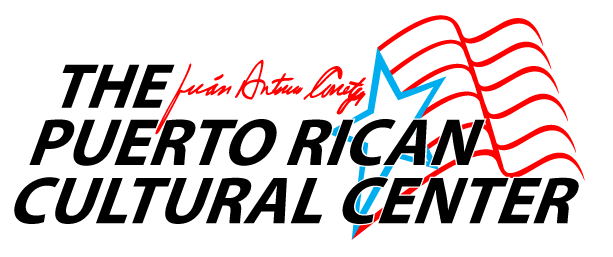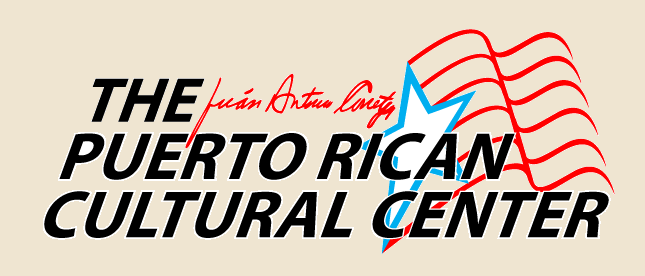Protesters in San Juan left more than 100 pairs of shoes outside the Capitolio, home to Puerto Rico’s legislature, a silent rebuke to the government, which has been criticized for undercounting the number of residents who died last year from the effects of Hurricane Maria. A Harvard University study published last week in the New England Journal of Medicine estimated the death toll was 4,645, rather than the official figure of 64.
At a rally held in New York the same day, speakers captured the disappointment of the crowd. “If it were 5,000 kittens, there would be outrage,” Elizabeth Yeampierre, executive director of Uprose, a Brooklyn-based community organization, said. “If it was 5,000 dogs, there would be outrage. If it was 5,000 blond-haired, blue-eyed women, there would be outrage.” Yet as Media Matters noted last week, the mainstream media gave more coverage to the fallout over Roseanne Barr’s exit from network television than the revelations about the undercount of Puerto Rico’s death toll.
In the 1990s, my parents returned to Puerto Rico for retirement, a move that strengthened my ties to island and allowed me to reconnect to its people and culture in a way many of us raised in places like New York, Chicago and Philadelphia find it hard to do. When Hurricane Maria hit, I saw firsthand the trauma islanders felt when their access to electricity, water and gasoline was cut off. Two weeks after the storm, I went with members of my family to retrieve my mother and aunt from their homes and witnessed how friends and neighbors struggled to keep their lives together. I remember the ache and concern of my cousin, who had to move her mother from her home to a hospital as she became increasingly disoriented.
Many on the island had grown skeptical of their relationship with the United States two years ago, when Congress approved the Puerto Rican Oversight, Management and Economic Stability Act, or PROMESA, which was intended to help restructure the island’s $72 billion debt. It not only created a Fiscal Oversight and Management Board that would render the island’s government largely powerless but also imposed painful austerity measures.
After Maria, that skepticism morphed into a real feeling of disenfranchisement.
The frustration has been building because damning evidence of the Trump administration’s neglect has stubbornly emerged. In March, Politico reported significant shortfalls in Washington’s commitment to efforts in Puerto Rico, compared with those in Texas and Florida. From the deployment of military helicopters to the funds approved by FEMA for individuals, food and water provided, and the number of military personnel deployed, Puerto Rico was clearly underserved. Frontline reported on how FEMA’s inability to deliver tarps for temporary roofing left many Puerto Ricans unnecessarily exposed to the elements for months.
[New Puerto Rico data shows deaths increased by 1,400 after Hurricane Maria]
“Are we receiving equal government resources for aid in crisis? No. For infrastructure repair? No,” said Efraín Molina, a senior computer network engineer at the Hospital for Special Surgery in New York. “Definitely feels like second-class citizenship to me.” Molina and I became friends as regular attendees at performances of traditional Puerto Rican plena music in New York and on the island.
Like myself, Molina is a “Nuyorican,” a Puerto Rican born and raised in New York, able to take advantage of rights and privileges that those who reside in the 50 states enjoy — voting for president in the general elections, electing representatives who vote in Congress — that unincorporated territories like Puerto Rico do not. In some ways, the full rights that mainland Puerto Ricans had seemed to be symbolically transferred to those on the island, who were free to relocate to the mainland as citizens and not go through the legal process that immigrants do.
But that phrase — unincorporated territory — always carried with it a nagging doubt, a sense of incompleteness when it came to citizenship. As I studied more about what it meant, it became more obvious that it was couched in the language of exclusion, one that could ultimately be employed to justify neglect. In fact, Puerto Rico’s current debt crisis was exacerbated because of its status, since, as an unincorporated territory, it was able to issue bonds with a triple tax exemption, feeding a bond-market speculation frenzy.
The debt crisis, which has become more severe in the wake of Maria, led to Congress’s imposition of the Fiscal Oversight and Management Board (FOMB) that has the power to overrule any decision made by Puerto Rico’s elected government in its efforts to satisfy creditors’ demands for payment. Ronaldo Emmanuelli, one of the lawyers who recently filed suit on the behalf of several unions of Puerto Rico’s State Insurance Fund Corp. against the U.S. government to declare null all the proceedings of the FOMB, thinks Puerto Rico’s plight is rooted in its inferior form of citizenship.
“The second-class nature of our citizenship is clear,” Emmanuelli said a phone interview from San Juan. He feels strongly that the legal basis for PROMESA was provided by the Insular Cases of 1901, which “asserted the racist reasons why Puerto Rico was not sufficiently dignified enough for full citizenship.” One of those cases, Downes v. Bidwell, famously stated that Puerto Rico was an unincorporated territory “belonging to, but not a part of,” the United States. “That case was decided on by some of the same judges who ruled on Plessy v. Ferguson, which said whites and blacks were separate but equal. It’s a legal justification for different treatment,” Emmanuelli asserted. Plessy was overturned in 1954, but unfortunately for Puerto Rico, Downes v. Bidwell has never been overturned.
Emmanuelli hopes the suit against the control board, which is being examined by a federal district court, can be considered by the Supreme Court. The higher visibility could raise more awareness in the United States and be championed by Puerto Ricans living on the mainland.
Yet David Galarza, a New York-based community activist who attended last week’s rally, thinks that Puerto Ricans on the mainland, along with African Americans and other marginalized groups, do not benefit enough from their citizenship.
“It doesn’t matter if you have first-class citizenship — African Americans in New Orleans were not treated like human beings,” he said. “If you’re not treated like a human being, what does it matter?” Galarza said. “There were people at the rally who talked about how their loved ones were Vietnam veterans, made sacrifices, and this is the way we’re treated. I think in my heart that seeing how their countrymen are being mistreated is waking them up to the evils of colonialism.”
Although it’s true that President Trump’s paper-towel-tossing spectacle when he visited Puerto Rico, coupled with his continual inflammatory anti-immigrant rhetoric, makes him the arch villain in this story, we can’t forget that it was during the Obama administration that PROMESA and its control board were imposed, with the approval of many Senate Democrats. And it’s worth noting that while on the mainland most of the outrage is directed at Trump, in Puerto Rico there’s a growing sense of outrage toward Gov. Ricardo Roselló, who sat smiling with Trump during his October 2017 visit when he announced that the hurricane’s death toll was only 16.
“Unfortunately, the final decision-making power is held by the U.S., and it has become clear that there is no political will to deal fairly with the case of Puerto Rico,” said Ana Teresa Toro, a Puerto Rican journalist and novelist.
Toro sees the Maria fiasco is “one of the many historical experiences in which Puerto Ricans have experienced direct discrimination because of our political status.” With the island no longer useful as a Cold War rejoinder to the Cuban experiment, she felt Trump’s actions “showed the most inhuman face of the treatment the island has been subjected to since it ceased to be the showcase of the Caribbean.”
This Sunday, Puerto Ricans from the island, Florida, and parts beyond will congregate in New York for the annual National Puerto Rican Day Parade. They will celebrate the island’s food, music, dance, its small towns, its open, giving spirit. Some may even celebrate that a court ruling this week that ordered the Puerto Rican government to turn its death records over to Puerto Rico’s Center for Investigative Reporting.
Some will be mourning the death of Angelo Falcón, director of the National Institute for Puerto Rican Policy, a tireless champion of Puerto Ricans and Latinos in the United States. Falcón died of a heart attack May 24. “Angelo was very clear that he viewed Puerto Rico as a U.S. colony,” said José Sánchez, a professor of politics at Long Island University and a longtime friend of Falcón. Sánchez recalled an Falcón wrote late last year called “The End of the Puerto Rican?” in which he was very clear about the Trump administration’s poor response to Hurricane Maria.
“The devastation caused by Hurricane Maria was something beyond anyone’s apocalyptic imaginings,” Falcón wrote. “The havoc it has created has been a major game changer for Puerto Ricans on all levels, politically, economically and socially. … The Puerto Rico that was, many have commented, no longer exists. So the question now becomes, what does or will exist?”
With a new hurricane season upon us, and so many struggles still remaining for everyone marginalized by Trump’s America, it’s time for Puerto Ricans, first- or second-class, island or mainland, to build bridges and find a way forward.






